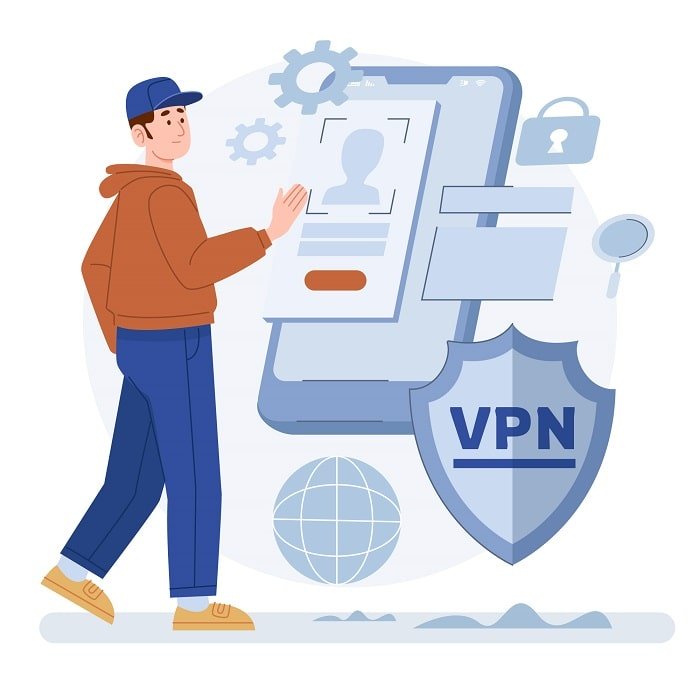
In the digital age, cybersecurity is paramount for the survival and success of businesses. With increasingly sophisticated cyber threats, securing systems and data is a complex challenge that requires robust strategies and tools. Businesses can find help with cybersecurity from a variety of sources, including managed security service providers, cybersecurity consultants, and government resources. This guide will explore these options to help you safeguard your business effectively.
Understanding the Cybersecurity Landscape
Definition and Key Components
Cybersecurity involves protecting systems, networks, and programs from digital attacks. Its key components include:
- Threat Prevention: Measures to prevent security breaches.
- Detection: Tools and strategies to detect anomalies.
- Response: Actions taken following a security breach.
Common Cybersecurity Threats
Businesses today face numerous threats such as:
- Malware: Malicious software including viruses and trojans.
- Phishing: Deceptive attempts to steal sensitive data.
- Data Breaches: Unauthorized access to data.
- Ransomware: Malware that encrypts data, demanding ransom.
Cybersecurity Regulations and Standards
Understanding regulations such as GDPR, HIPAA, and PCI DSS is crucial for compliance and protection strategies, helping businesses protect consumer data and avoid hefty fines.
Assessing Your Cybersecurity Needs
Evaluating Current Measures
Start by reviewing your existing cybersecurity measures. Identify any gaps by comparing current practices against industry standards.
Determine Specific Requirements
Consider factors like business size, industry, and typical threat vectors to tailor cybersecurity measures effectively. This ensures resources are allocated where they’re most needed.
Prioritizing Needs
Focus on areas with the highest risk and potential impact on your business. This prioritization helps in effective resource allocation and risk management.
Managed Security Service Providers (MSSPs)
Role of MSSPs
MSSPs offer outsourced monitoring and management of security devices and systems. Common services include managed firewall, intrusion detection, virtual private network, vulnerability scanning, and anti-viral services.
Benefits of Using an MSSP
- 24/7 Monitoring: Continuous oversight of your IT environment to detect and respond to threats swiftly.
- Incident Response: Expert handling of security breaches to minimize damage.
- Compliance Support: Assistance in meeting legal and regulatory requirements.
Examples of MSSPs
- Secureworks, Fortinet, and Rapid7 are notable providers offering extensive cybersecurity services that cater to various business needs.
Cybersecurity Consultants and Experts
Role of Consultants
Cybersecurity consultants provide expert advice tailored to your specific needs, helping to develop and implement a comprehensive security strategy.
Benefits of Consulting Services
- Risk Assessments: Identifying potential vulnerabilities in your systems.
- Security Strategy Development: Crafting a tailored security plan.
- Incident Response Planning: Preparing your business to handle potential security breaches effectively.
Finding and Vetting Consultants
Look for consultants with recognized certifications, proven experience, and positive references. Ensure they have a track record in your specific industry or with businesses of your size.
Government Resources for Cybersecurity Support
Overview of Government Agencies
Agencies like CISA, FTC, and SBA provide valuable cybersecurity resources and guidance.
Government-Sponsored Programs
- NIST Cybersecurity Framework: A comprehensive set of guidelines to help businesses manage and reduce cybersecurity risks.
- SBIR/STTR Grants: Programs that provide funding for cybersecurity research and development.
Benefits of Government Resources
These resources are often cost-effective and provide substantial guidance on compliance, making them invaluable for small to medium-sized enterprises.
Implementing and Maintaining Cybersecurity Measures
Steps for Implementation
- Risk Assessment: Identify what needs protection.
- Solution Selection: Choose appropriate tools and services.
- Deployment: Implement solutions effectively.
Importance of Training
Educating employees about cybersecurity best practices is crucial. Regular training ensures that staff are aware of potential threats and know how to handle them.
Continuous Monitoring
Ongoing surveillance of your cybersecurity measures is essential to detect and respond to threats promptly. Regular reviews and updates to your security protocols keep your defenses strong.
Overcoming Challenges in Finding Cybersecurity Support
Budget Constraints
Finding cost-effective solutions is essential, especially for small businesses. Consider both short-term costs and long-term benefits when evaluating options.
Navigating Complex Solutions
The cybersecurity market is vast and complex. Clear criteria based on your specific needs can help in selecting the right tools and services.
Integration Challenges
Ensure that new cybersecurity measures integrate smoothly with your existing business processes to avoid disruptions.
Conclusion
Securing your business against cyber threats is an ongoing process that requires a strategic approach. By understanding your needs, exploring various support options, and implementing robust cybersecurity measures, you can protect your business effectively. Start exploring your options for cybersecurity support today to ensure your business remains secure and resilient in the face of growing cyber threats.















































